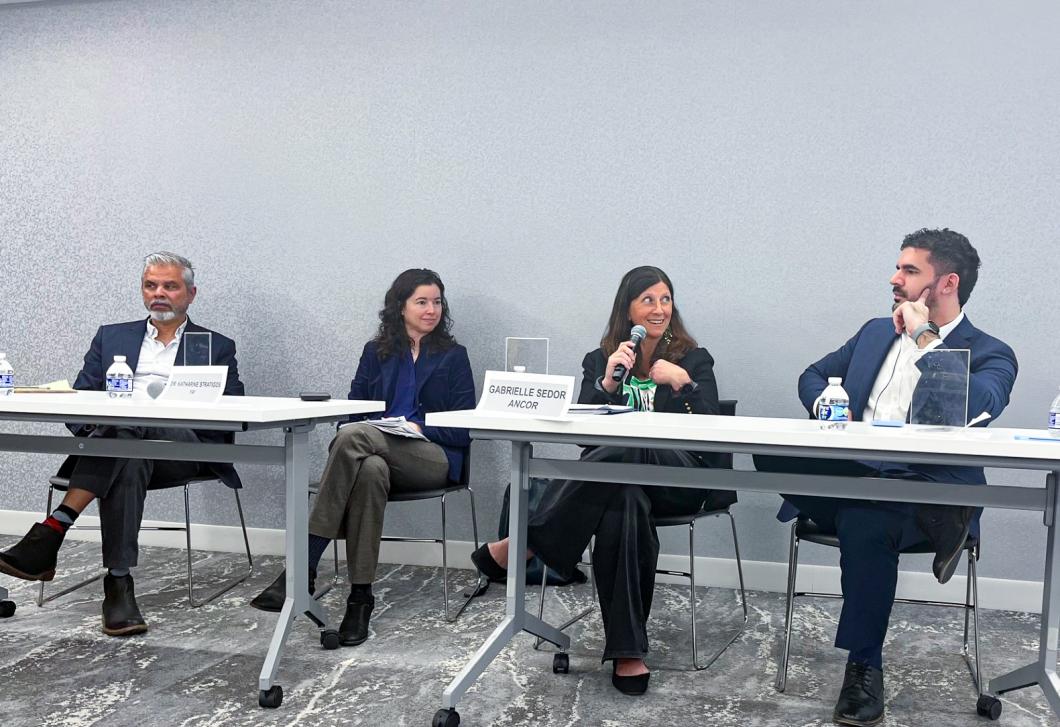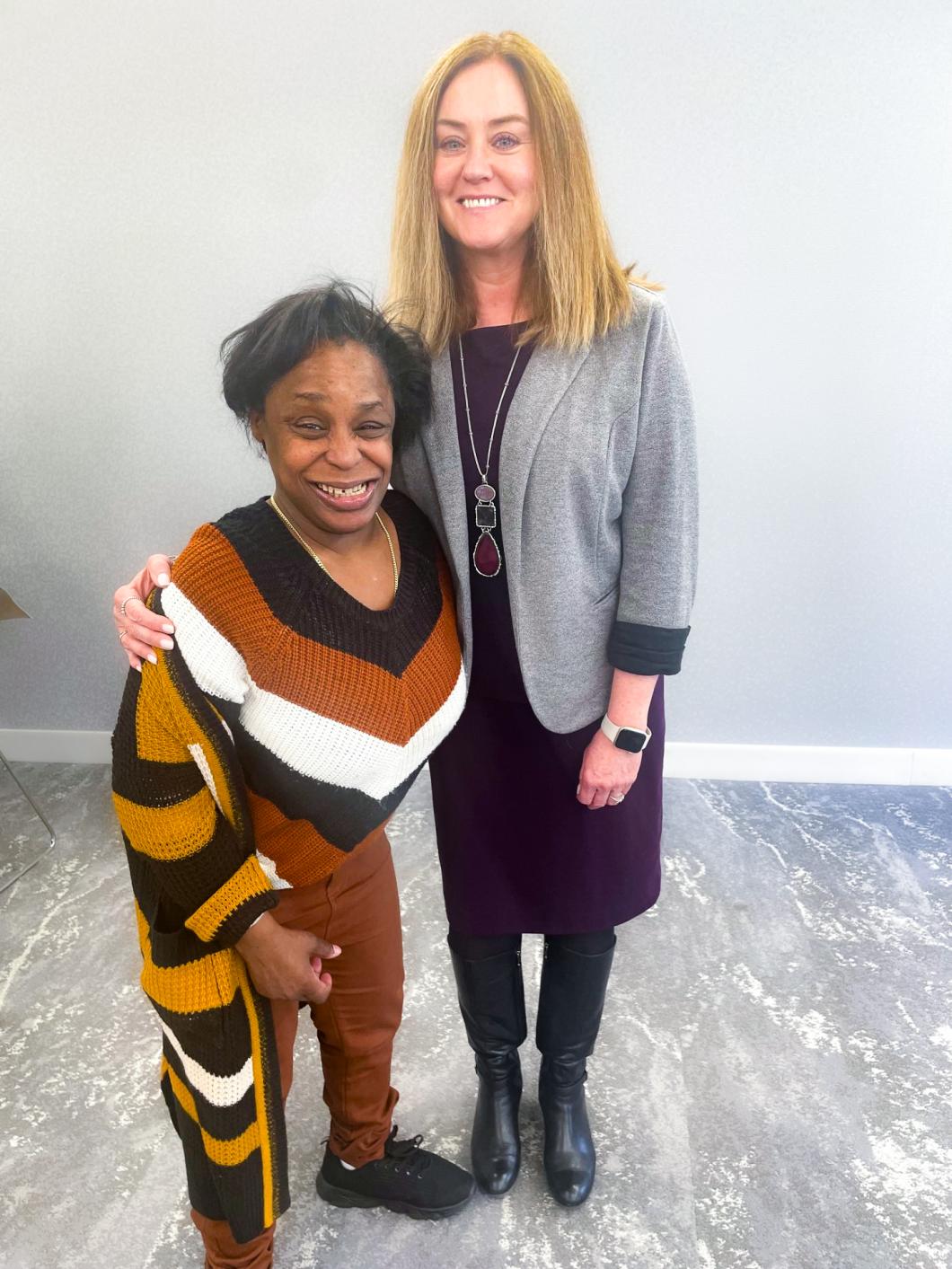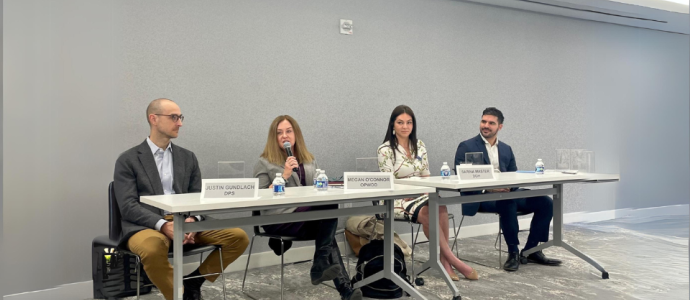Kisha Haire, the president and founder of YAI’s Bronx Self Advocates group, is passionate about lending her voice to discussions on climate change and how it disproportionately affects her community, people with disabilities – a historically overlooked population who is more vulnerable than the general public when it comes to this increasingly pressing issue.
“I’m involved with self advocacy and I have a disability that makes it hard for me to talk, but I’m glad I am here...I live on my own with my partner on the fifth floor of my building and I want to know in case of a fire or a hurricane, how would I get out and where would I go,” Haire shared with her fellow panelists at YAI’s climate change and disability policy symposium on April 25.

This unique panel discussion, moderated by Scott Karolidis, YAI's Director of Government Relations, brought together experts from different areas – government officials, service providers, doctors, and people with disabilities. They tackled a critical issue rarely discussed in policy, but a daunting reality for people with disabilities in every aspect of their lives.
People with disabilities are at much higher risk during natural disasters – research shows they're more than four times more likely to die than others. As extreme weather events become more common due to climate change, the disability community is urging lawmakers to include them in disaster planning.
The symposium’s two panels focused on two key issues: state policies for caregiving in a changing climate and how people with disabilities can contribute to climate solutions.
Speakers included Megan O’Connor from the NYS Office for People with Developmental Disabilities (OPWDD), Sarina Master from the NYS Department of Health (DOH), Justin Gundlach from the NYS Department of Public Service (DPS), Gabrielle Sedor from the American Network of Community Options and Resources (ANCOR), Dr. Katy Stratigos and Ravi Dahiya from YAI, and YAI Self Advocate Kisha Haire.
A wide range of topics were discussed, including how people with disabilities can prepare for and recover from natural disasters. Participants talked about how buildings could be upgraded to be more efficient. Discussions also covered how local communities can work together toward climate solutions based on their specific needs. Other ideas included promoting mental health during challenging times and advocating for policies that recognize caregiving jobs as green jobs.

Every climate policy, whether it focuses on preventing climate change or adapting to it, impacts people with disabilities.
"By focusing on electric cars or blocking cars from downtowns, are you blocking out people with disabilities? There are all these things you don't think about unless all the voices are in the room," said Gabrielle Sedor, Chief Operations Officer of ANCOR.
Moreover, some of the impacts are acutely felt for people with intellectual and developmental disabilities (I/DD). For example, rising temperatures and days with extreme heat may exacerbate discomfort and challenging behaviors, and even change the effectiveness of medication. One panelist pointed out that when pregnant women live in areas with greater air pollution, their children have higher rates of autism. There are currently little to no resources for staff, families, and people with I/DD to combat these concerns.
"Every single state agency has some role in disaster preparedness. We look to provider agencies to have an emergency preparedness plan,” said Megan O’Connor, Deputy Commissioner of OPWDD. “Emergency preparedness is defined by everyone’s individual needs. It’s really critical for us to keep up to date, communicate, and really make sure that we are working together in all different levels. ...We've done a lot and learned a lot, but we can always do more.”
Traditionally, policy focused on people with disabilities is restricted to Medicaid, safety and human rights, and health outcomes. These remain necessary topics for advocacy, but people with disabilities experience the entire world as everyone else does. This conversation provided an important first step in addressing how and why people with I/DD need a seat at the table when it comes to climate solutions.
“There's trauma after disasters. It's completely destabilizing. The downstream effects of trauma do affect your physical health so after disasters, we have to look at trauma,” said Sarina Master, Director of Special Policy and Programming at the DOH. “These conversations are so important and they're not happening enough. Unless we have YAI and other agencies bringing us to the table and asking us these questions, those conversations aren't happening."
YAI’s climate symposium is likely to be the first in a series of panel events bringing together speakers from across policy issues that affect people with disabilities and the workforce that supports them.
“We face issues with accessibility every day. But with extreme weather and how it affects our health, the information is just not readily available for us to know how to protect ourselves,” Haire said. “There needs to be a better way for us to get access to this information. We know a lot, but we need to know more on how to handle emergencies.”

